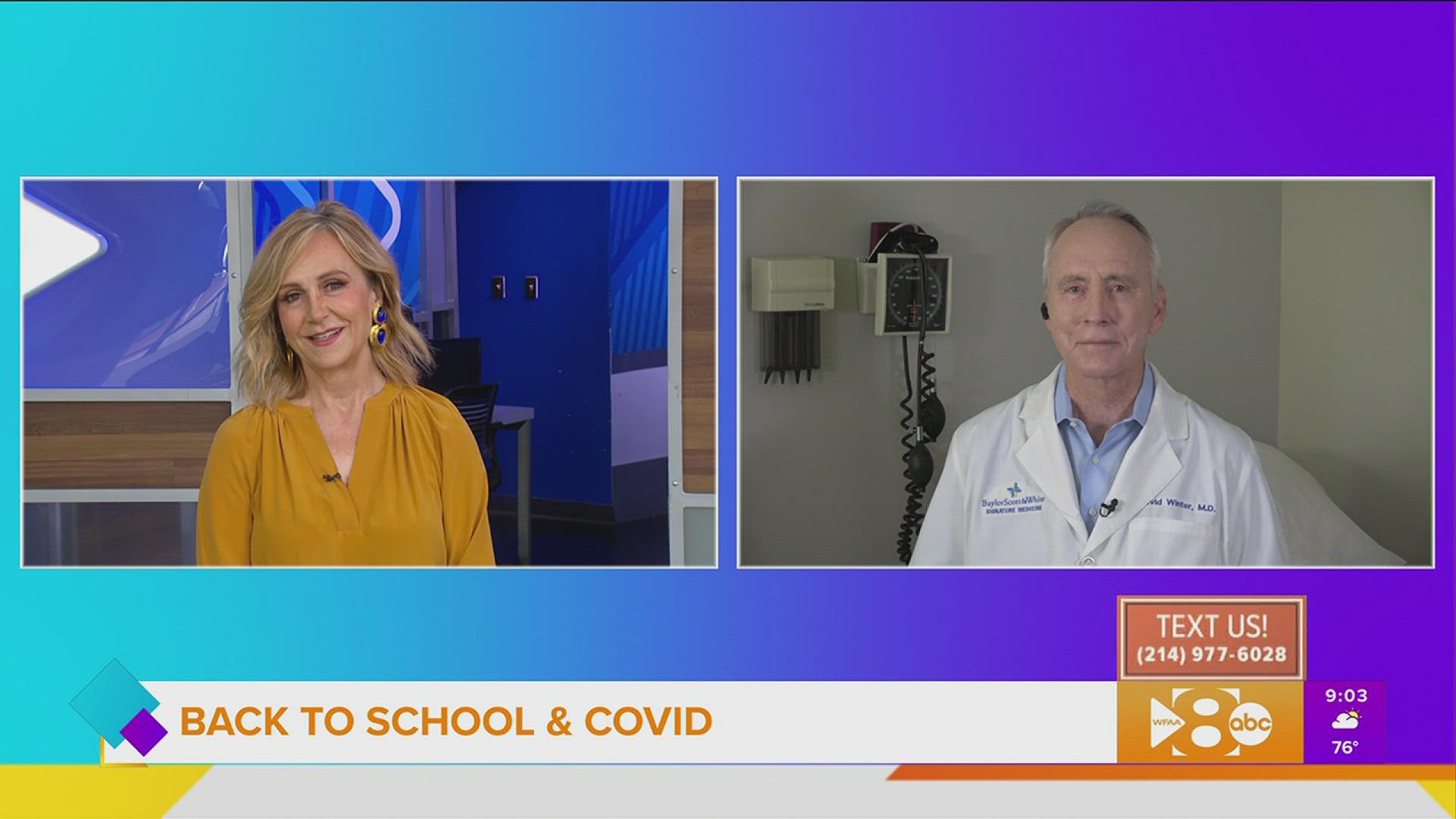FORT WORTH, Texas — A new school year is here with big changes -- a large majority of students in North Texas will be returning to school in person. With that may come some stress and anxiety.
Dr. Amanda Jordan, Psy.D., a licensed psychologist at Cook Children’s Alliance shared what parents can do to ease into the transition.
Establish routine
Many students were learning virtually, which gave more flexibility in home schedules.
Jordan says establishing the child's school routine early before school starts can help, such as getting up early, eating breakfast and having a regular bedtime routine.
Signs for stress & anxiety
The way anxiety and stress manifests in children is different than in adults, Jordan said. Parents should keep an eye on these signs:
- Overreacting with emotions
- This is common, Jordan said, such as if a parent asks the child to do a simple task, like to put away the dishes, and the child has a meltdown.
- Toileting accidents
- Difficulty falling asleep or staying asleep
- Nightmares
- Appetite changes
- Poor concentration
- Irritability
- Stomach aches/headaches
- Withdrawn behaviors
- This is more common with teens, such as staying in their bedroom
Techniques
If your child is exhibiting signs of stress and anxiety, there are tools and coping mechanisms you can use to help them feel better.
- Count to 10 and take a deep breath
- For younger kids, teaching them to take a deep breath such as "pretend we're blowing bubbles" or "pretend you're blowing out a candle on a cupcake" to make it fun, Jordan says.
- Talk to a teacher or counselor
- Take some time to discuss with the child an example in their past, such as when they felt similar nervousness and they overcame
It can help prepare children for the school year by taking them to the campus and talking through the school schedule. Show them where they'll be dropped off in the morning. Going shopping for school supplies together also helps them look forward to their year.
When school begins, make sure the fun doesn't stop when summer ends. Make weekend plans they can look forward to, like going for a family hike.
Making them comfortable
Check with your student's school district regarding COVID safety protocols and policies. Talk to your child about hand hygiene.
For social distancing, understand your child's comfort level regarding hugging and touching hands with other students, like high fives or handshakes.
Also, ask about their comfortability with wearing masks.
"'Would you prefer to wear a mask? Would you prefer to not wear a mask?' and kind of assessing their safety," Jordan said. "And asking 'OK, do you feel more comfortable wearing a mask? That's totally OK, but there might be other kids in your class who choose not to and that's OK too.'"
She said there's also a mutual respect component to teach kids that everybody has their own choice right now to wear a mask.
After learning from home or being away from the regular routine for so long, some kids may feel some social anxiety.
Jordan says talking through some of those social situations could help using the "if-then" model.
"For example, 'what if nobody wants to sit with me at lunch?' and as a parent talking with them," Jordan said. "And saying ... 'You could approach a table and ask, 'Can I sit with you?' Depending on the school and the environment, you could choose to sit outside and eat your lunch and enjoy nature. Just thinking through what those options are and what would that look like."
Assess how your child is feeling with open-ended questions. If you feel your child is anxious or worried, Jordan says parents can normalize it and let them know that other adults, and even other kids, feel the same way.
"Even recognizing it in ourselves like, 'Mommy feels nervous when she starts a new position, too, or when she has to change jobs,' and so [it normalizes] that for them," Jordan said.
Other tips:
- Give them positive feedback
- Make a goal list for the school year, such as joining a club or making a new friend
- Ask them what they're looking forward to
Dr. Jordan shares these parent resources:
Cook Children’s Behavioral Health: Intake Line 682-885-3917
Child Mind Institute at www.childmind.org
Psychology Today at www.psychologytoday.com to find a therapist/counselor in your area.
Texas Youth Hotline: at www.dfps.state.tx.us/youth-helpline
Can call or text 24/7: 1-800-989-6884

